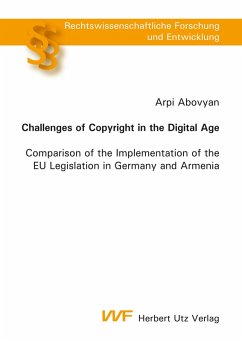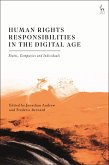The adaption of copyright law to the digital age is currently one of the EU's main concerns regarding intellectual property. This thesis analyses whether European legislation in this field can be successfully implemented in the same way in countries with different levels of development. Taking the examples of Germany and Armenia will help to evaluate the problems of developed and transition countries concerning the challenges of copyright in the digital age. The comparison between these two countries shows that a one-size-fits-all-approach is not appropriate in the digital environment. The socio-economic situation and the legal environment of transition countries call for a different solution. In this respect the example of Armenia may be instructive for other transition countries as well, especially CIS countries. A recommendation for adopting a certain system for drafting European legislation in the future which will meet the needs of all countries, considering their social, economic and legal situation, has been developed in this thesis.
Dieser Download kann aus rechtlichen Gründen nur mit Rechnungsadresse in A, B, BG, CY, CZ, D, DK, EW, E, FIN, F, GR, HR, H, IRL, I, LT, L, LR, M, NL, PL, P, R, S, SLO, SK ausgeliefert werden.









